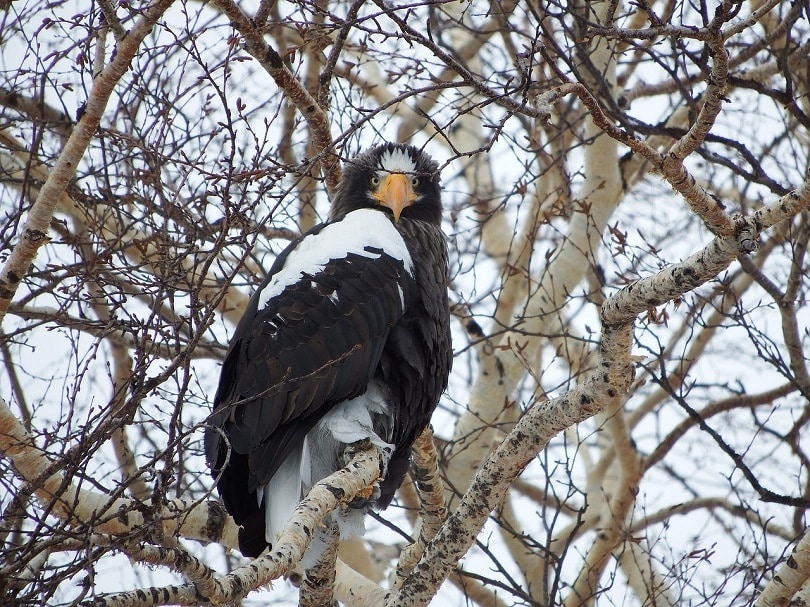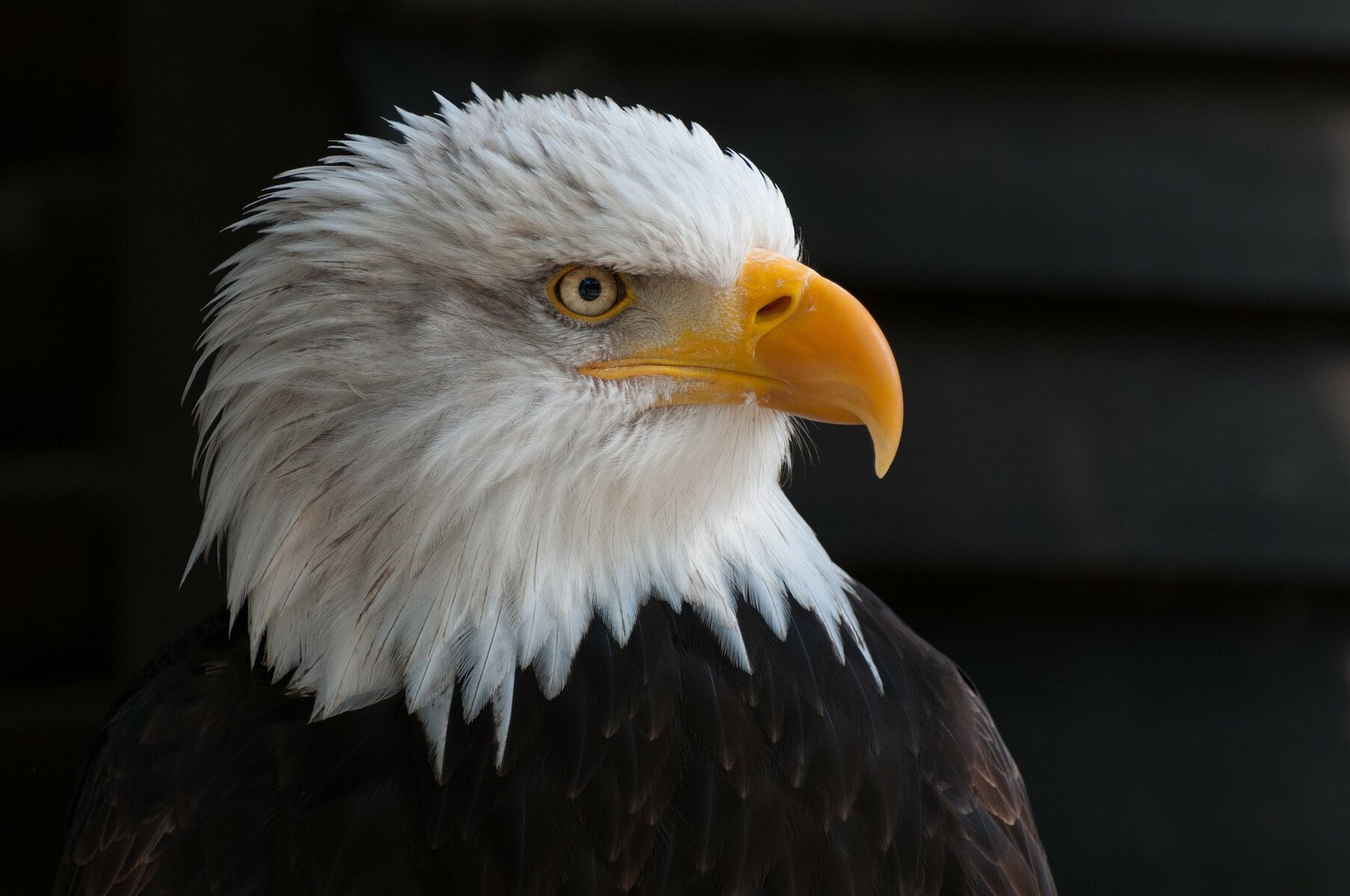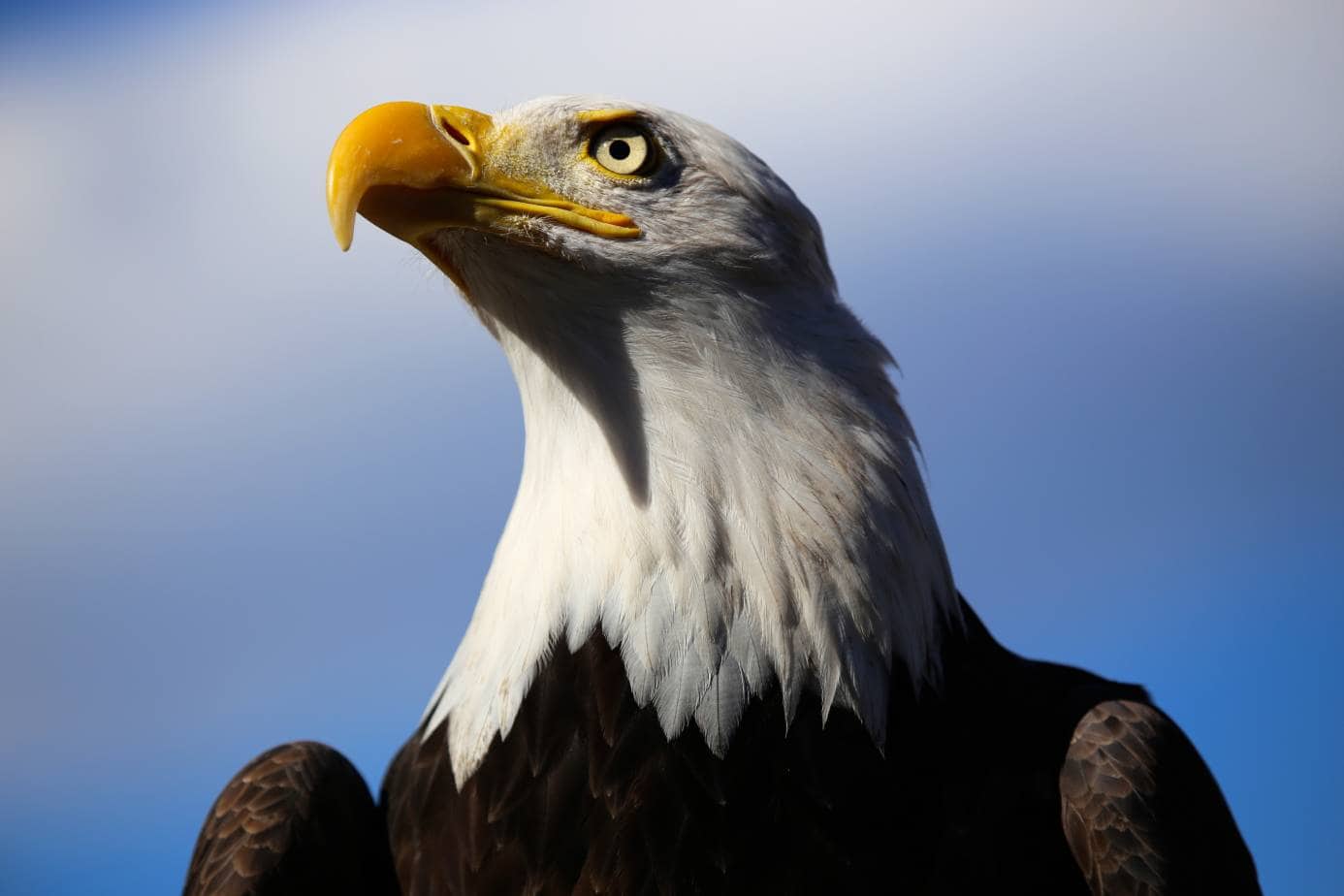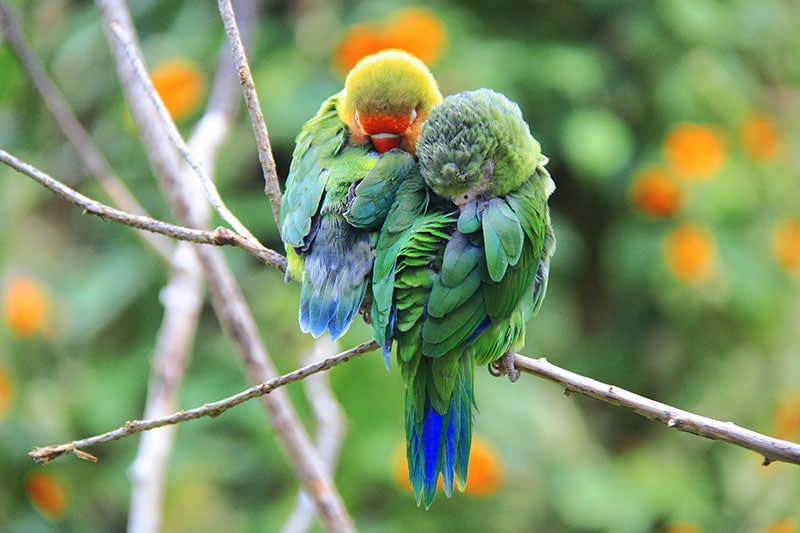VET APPROVED

The information is current and up-to-date in accordance with the latest veterinarian research.
Learn more »Click to Skip Ahead
Eagles are large birds of prey. They have hooked beaks that are designed for tearing through flesh, and they are muscular birds that are bigger than most other raptors, except vultures.
Depending on the species of eagle, and where they reside, their diet consists of mammals, birds, and some fish. They fly at 30 mph, achieving swooping speeds of 100 mph when diving for prey, with the Golden Eagle reaching speeds as high as 150 mph. They are magnificent creatures but, despite their size, few of us have the opportunity to see them in the wild.
Only two species of Eagle are native to the U.S.: the Bald Eagle and the Golden Eagle, although two other species do visit and can be found on U.S. shores: the Steller’s Sea Eagle and the White-tailed Eagle.
In all cases, it is illegal to keep eagles as pets, and the only way that a person can tame and keep eagles is if they have trained and certified as a master falconer.
Important note: PangoVet does not endorse or encourage the keeping of wild, exotic, protected, endangered, or otherwise threatened animals as pets. This article is for informative purposes only.

Why Can You Not Keep Eagles As Pets?
There are federal laws that protect eagles and ensure their wellbeing, and the laws are very strict. Even taking an eagle feather that you find on the ground is an offense, according to the Bald and Golden Eagle Protection Act of 1940. There are exceptions, but only for recognized American Indian tribes, and even then, the rules are precise and must be strictly adhered to. The unlawful possession of an eagle feather can carry a $5,000 fine or one year in prison even for a first offense.
The same act also makes it an offense to keep an eagle as a pet although there are exceptions that allow a master falconer to apply to be allowed to keep one or more of these wild birds.

How to Become a Master Falconer
Becoming a master falconer in the U.S. is a long-term commitment that requires years of training and dedication.
The first step is to contact your state’s wildlife department and ask them for a list of currently licensed falconers in your state. You must start as an Apprentice, working under the guidance of a licensed General or Master falconer sponsor for at least the first 2 years. As an Apprentice, you’ll be required to: pass a written examination with a score of at least 80% and construct a proper housing facility (mews) that meets federal and state standards. Additionally, you will need to acquire essential falconry equipment, including a scale, perch, jesses, leash, swivel, glove, bells, and a reliable food source.
Once you’ve passed your written examination with a score of 80% or better, an Apprentice can become a General falconer if you obtain your permit and license. It is permitted to keep two raptors, typically red-tailed hawks or kestrels. A further 5 years of experience will lead to the designation of master falconer.
Even once a person becomes a recognized master falconer, they must apply for an eagle license. Since 2008, it has been possible to apply for a license at state level. Once you have an eagle permit, you are allowed to keep up to three golden, white-tailed, or Steller’s sea eagles. The keeping of Bald Eagles is prohibited, no matter how experienced a falconer you become.
How to Enjoy Eagles
Although you can’t keep eagles, in most cases, there are still ways that you can enjoy these incredible animals. The best way is to see them in their natural surroundings.
Alaska has the largest population of Bald Eagles in the US with more than 30,000 birds. However, they can now be found in all states apart from Hawaii. The species got the name not because it is bald but because its white head, in contrast to its dark brown body, makes it look as though it has a bald head. This also makes recognition easy. They tend to be most active at around 8 am and 5 pm. They like lakes and are most often spotted high in trees surrounding large bodies of water. Although they do prefer fish, they will eat small animals including birds and rodents so they may be seen hunting in open fields.
Golden eagles are dark brown and have the same color head as their body. They are usually found over open ground and may be found in mountains as well as over hills and cliffs. Although rare in the Eastern states, they are more common in the West.

Alternatives That You Can Keep
Keeping native owls is also heavily regulated in the U.S. According to the International Owl Center, “the United States does not allow private individuals to keep native owls as pets–they may only be possessed by trained, licensed individuals while being rehabilitated, as foster parents in a rehabilitation facility, as part of a breeding program, for educational purposes, or certain species may be used for falconry in some states (although they rarely make good falconry birds). Even in these instances, the person licensed to keep the owl does not “own” the bird–the U.S. Fish and Wildlife Service retains “stewardship” of the birds so that they may recall them at any time if permit conditions are not being met.”
Owls need a large outdoor enclosure, unlike similarly sized parrots that could live in an indoor cage. They will never be pets, in that they will not enjoy being cuddled and may only barely tolerate being handled after years of ownership. They are very high maintenance, requiring daily care, and this also means that they require a considerable commitment that can make holidaying impossible. They are also nocturnal and this means that they are prone to making loud noises at night, preventing you and your neighbors from getting good rest.
Parrots, on the other hand, are considered good pets. If you choose the right species, they can be playful, enjoy human company, and although they do require regular maintenance, it is easier to find a friend or family member that is capable of providing short-term care while you have a week or two away. Budgies, which are among the smaller pet parrot species, are not only playful and friendly but are relatively easy to keep, do not destroy your house, and they tend to be quiet birds.

Do Eagles Make Great Pets?
Eagles are not pets, they are powerful, wild birds with complex needs. In the U.S., only Master falconers with years of specialized training and a special permit may keep a golden eagle, and even then, under strict conditions. Eagles do not tolerate handling well and will never behave like domesticated animals. They require large outdoor spaces, daily flying, and highly specific care routines
Instead of trying to keep one, consider appreciating these magnificent birds in the wild or supporting eagle conservation efforts. If you’re looking for a companion bird, species like parrots or other domesticated birds are far more suitable and rewarding for life at home.
Feature Image Credit: Steve Boise, Shutterstock










